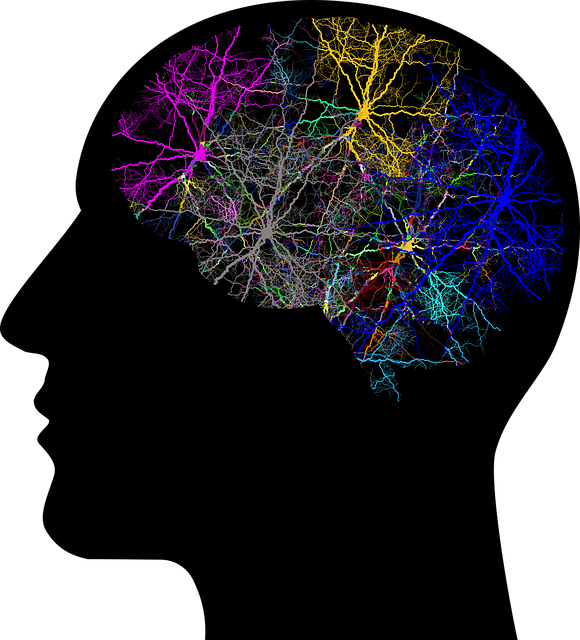Oregon boasts a progressive mental health legal framework prioritizing community-based care, early intervention, and individual empowerment. Historically marked by de-institutionalization, the state's legislation ensures equitable access to treatment, robust privacy protections, and informed consent. Challenges include outdated regulations and disparities in service accessibility, prompting proposed reforms to expand evidence-based treatments, streamline commitment processes, and increase recovery support services. These initiatives aim to enhance Oregon's mental health legal framework while fostering a culture of mental well-being across the state.
Oregon’s mental health legal framework, shaped by a historical emphasis on community care, stands as a model for balanced regulation. This article delves into the key components of this framework, including community-based services and patient rights protections. We explore how Oregon navigates challenges within its current laws and propose reforms to further enhance its progressive approach to mental health care. Understanding Oregon’s unique legal landscape offers valuable insights into effective mental health regulations, providing a testament to the state’s commitment to holistic treatment and individual well-being.
- Understanding Oregon's Mental Health Legal Framework: A Historical Perspective
- Key Components of Oregon's Mental Health Regulations
- The Role of Community-Based Services and Support
- Patient Rights and Protections in Oregon's System
- Challenges and Gaps in the Current Legal Framework
- Proposed Reforms and Future Directions for Oregon's Mental Health Laws
Understanding Oregon's Mental Health Legal Framework: A Historical Perspective

Oregon has developed a unique and progressive mental health legal framework over time, reflecting its commitment to empowering individuals with access to quality care. Historically, the state’s approach to mental illness was shaped by the institutionalization of the 19th and early 20th centuries, where asylums served as the primary form of treatment. However, a significant shift occurred in the late 20th century, moving away from restrictive institutions towards community-based care and de-institutionalization. This transition led to the establishment of robust legal protections for individuals with mental health conditions.
The state’s mental health laws focus on ensuring individual rights, promoting recovery, and fostering inclusion. Oregon’s legislation emphasizes early intervention, voluntary treatment, and support services to help individuals manage their conditions effectively. By implementing these measures, Oregon aims to create a supportive environment where those with mental health challenges can thrive while maintaining their independence and community integration.
Key Components of Oregon's Mental Health Regulations

Oregon has established a comprehensive mental health legal framework that prioritizes both individual rights and community support. At the core, the state’s regulations emphasize early intervention and prevention services, ensuring access to care for individuals experiencing acute or chronic mental health conditions. This approach includes mandatory training programs for healthcare professionals, teachers, and law enforcement officers, fostering a more informed and responsive system.
Key components of Oregon’s mental health regulations also revolve around privacy protections and informed consent. These measures safeguard the rights of individuals while encouraging open communication between patients, healthcare providers, and family members. By balancing these protective measures with robust support systems, Oregon aims to create an environment where mental well-being is nurtured, and help is readily available when needed.
The Role of Community-Based Services and Support

Oregon’s approach to mental health regulations prioritizes community-based services and support, which play a pivotal role in the state’s robust mental health legal framework. Unlike institutionalization, the focus is on providing accessible, personalized care within individuals’ communities. This shift towards community-based interventions ensures that those struggling with mental health issues receive tailored support, fostering a sense of belonging and empowerment.
The state has invested significantly in building a network of local service providers, including non-profit organizations, community clinics, and peer support groups. These entities offer various services such as therapy, case management, crisis intervention, and recovery support, all designed to meet the unique needs of each individual. This distributed approach not only enhances accessibility but also promotes collaboration among different stakeholders, creating a holistic environment that supports mental well-being.
Patient Rights and Protections in Oregon's System

In Oregon, the mental health legal framework prioritizes patient rights and protections. The state has implemented robust regulations to ensure individuals receiving mental health services are treated with dignity and respect. One key aspect is informed consent, where patients must understand their treatment options, potential risks, and benefits before agreeing to care. This process empowers individuals to make autonomous decisions about their mental well-being.
Additionally, Oregon’s system emphasizes confidentiality. Healthcare providers are legally bound to maintain the privacy of patient records and information, ensuring a safe space for individuals to disclose personal struggles. These protections foster trust between patients and healthcare professionals, encouraging open communication essential for effective treatment.
Challenges and Gaps in the Current Legal Framework

Oregon’s current mental health legal framework faces several challenges and gaps that require attention. One significant issue is the outdated nature of some regulations, which may not adequately address contemporary mental health care practices and patient needs. The rapid advancements in psychiatric treatments and therapies often outpace legislative updates, leaving potential loopholes in the system. For instance, while the state has made strides in de-stigmatizing mental illness, the legal framework might still contain provisions that inadvertently discourage individuals from seeking help due to fear of legal repercussions or privacy concerns.
Additionally, ensuring equitable access to mental health services is a complex task within the current framework. There are disparities in resources and support available across different regions of Oregon, impacting both urban and rural communities. Gaps in community-based services, coupled with limited specialized care options, can hinder effective treatment and recovery for many Oregonians struggling with mental health issues. Addressing these challenges is vital to establishing a comprehensive and inclusive legal framework that supports the well-being of all residents.
Proposed Reforms and Future Directions for Oregon's Mental Health Laws

Oregon’s mental health legal framework has seen proposals for reforms aimed at enhancing access to care and improving patient outcomes. Future directions include expanding coverage for evidence-based treatments, streamlining commitment procedures, and increasing support services for recovery. By focusing on these areas, Oregon can strive towards a more comprehensive and effective mental health legal framework that better serves its residents.
Proposed reforms highlight the need for integrated care models, where mental health services are seamlessly incorporated into primary healthcare settings. Additionally, there’s a push to reduce stigma through public education campaigns and promote community-based interventions. These future directions aim to address current gaps in Oregon’s mental health system, ensuring individuals receive timely and appropriate support while respecting their rights within the legal framework.
